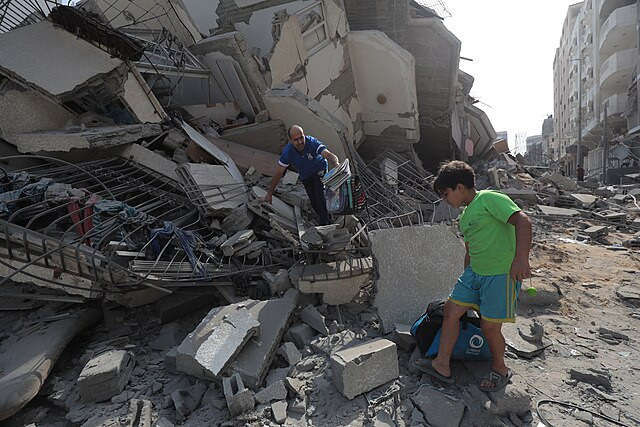The United Nations has retracted a dire claim made by one of its senior officials that 14,000 babies in Gaza could die within 48 hours, acknowledging that the figure was based on a misinterpretation of a long-term malnutrition forecast. The correction comes amid ongoing international pressure on Israel to allow more humanitarian aid into Gaza, where aid deliveries remain stalled despite the entry of trucks at the Kerem Shalom crossing.
Tom Fletcher, the UN's under-secretary-general for humanitarian affairs, stated during a BBC Radio 4 interview on Tuesday, "There are 14,000 babies that will die in the next 48 hours unless we can reach them." The comment drew immediate attention, was widely circulated by international media, and was cited by members of the UK Parliament during a House of Commons debate.
The BBC has since clarified the figure was inaccurate. Following inquiries to the UN Office for the Coordination of Humanitarian Affairs (UNOCHA), the broadcaster confirmed the claim was based on a misreading of a report by the Integrated Food Security Phase Classification (IPC). The IPC had projected 14,100 cases of severe acute malnutrition among children aged six to 59 months across a 12-month period from April 2025 to March 2026.
The UN acknowledged that not all the affected children are babies, and none are predicted to die within the next 48 hours under current modeling. UNOCHA spokesperson Jens Laerke later stated, "We know for a fact that there are babies who are in urgent life-saving need... and if they do not get those [supplements], they will be in mortal danger."
Eylon Levy, a former spokesperson for Israel's government, called for Fletcher's resignation, saying he had "caused a global media panic about something totally made up."
The correction arrives as Israel faces increasing diplomatic fallout over its military campaign and blockade of Gaza. Although Israel agreed to allow limited aid into the territory this week, the UN says no supplies have been distributed. UN spokesperson Stephane Dujarric said a team "waited several hours" but "were not able to bring those supplies into our warehouse."
The UN has described the current aid flow as "a drop in the ocean" and estimated that 600 trucks per day are needed to address Gaza's escalating humanitarian crisis. Israeli authorities said 93 trucks entered on Tuesday, carrying food, medical supplies, and baby formula.
Meanwhile, the Hamas-run Civil Defence service reported that 15 people, including a child, were killed in Israeli airstrikes since midnight Wednesday. The health ministry in Gaza now reports over 53,000 deaths since October 7, 2023, including 3,340 since the offensive resumed.
International condemnation of Israel's response continues to mount. UK Prime Minister Keir Starmer suspended trade talks with Israel, calling the offensive "morally unjustifiable." The EU's foreign policy chief Kaja Kallas said Brussels would review its trade relationship with Israel. Canada, France, and the UK issued a joint statement urging Israel to allow "immediate" humanitarian access.
U.S. Secretary of State Marco Rubio acknowledged the renewed flow of aid but admitted it was insufficient. "I understand your point that it's not in sufficient amounts, but we were pleased to see that decision was made," Rubio said during Senate testimony on Tuesday.






